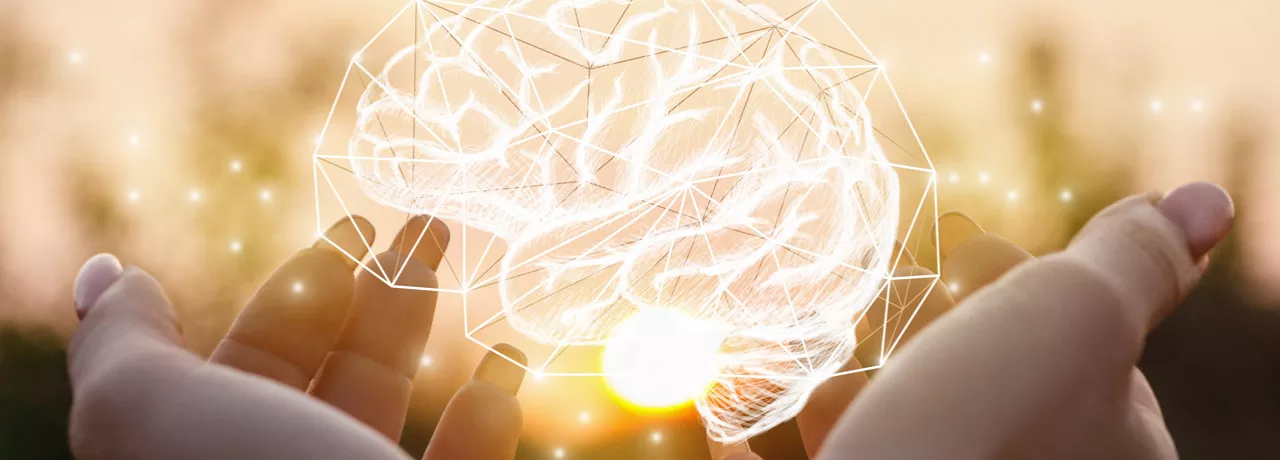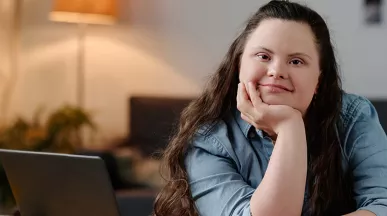#PeopleOfPluxee: ADHD Awareness with Nik & Amanda

We're thrilled to be sharing our first #PeopleOfPluxee article with you, shining a light on the unique and wonderful humans who power our business. Join Amanda Chan, HR Advisor interviewing Nik Charlson, Head of Digital Operations. Together, they bust ADHD myths and explore how you can truly make the workplace a safe and inclusive space for neurodiverse colleagues.
In a hurry? Here are the three top takeaways for HR from our interview for ADHD awareness.
1. ADHD is about difference, not deficit: Recognise neurodiversity as a form of cognitive diversity. Don’t equate “different working style” with “poor performance.”
2. Support is about clarity, flexibility, and empathy: Design work environments and policies that “design for difference.” Encourage managers to give clear expectations, feedback without judgment, and space for employees to recharge.
3. Understanding starts with curiosity, not assumptions: Foster a culture where managers and colleagues replace assumptions with open conversation and psychological safety. Training on neurodiversity awareness should emphasise empathy and inclusive communication.
Got time to stick around? Read the full interview below.
Welcome
Before we get into the slightly heavier topic, Nik, let’s start with a light one. What are you currently reading or watching right now?
"I always have a few things on the go. Right now, I’m dipping in and out of a book on behavioural economics, because I love understanding why people make the decisions they do. On the lighter side, I’ve been rewatching The Office. It’s oddly comforting, a reminder that workplaces can be chaotic, human, and funny all at once."
How would you personally describe ADHD to someone who doesn’t know too much about it?
I’d like to start this off by busting some myths around ADHD. ADHD can be commonly perceived as ‘being distracted’ or ‘not paying attention’. How would you personally describe ADHD to someone who doesn’t know too much about it?
"For me, ADHD isn’t about “not paying attention.” It’s about experiencing the world differently, more intensely, more noisily, sometimes more beautifully, sometimes more chaotically. One of the strangest things about it is the assumption that everyone else’s brain works like yours. You grow up thinking everyone has this constant flood of thoughts, the same distractions, the same rollercoaster of emotions. But then you start noticing the gap: other people seem to handle things you can’t. They can start tasks without wrestling themselves into it. They can keep track of time. They don’t lose whole afternoons to what feels like quicksand in your head.
And that can be disorientating. You end up asking yourself, “If everyone else can do it, why can’t I?” You blame yourself because you think the problem is laziness or lack of willpower.
ADHD reframes that. It’s not that you’re incapable; it’s that your brain runs on different wiring. It’s like everyone else has a satnav that calmly gives directions, while yours is a pirate map scribbled in crayon. Both can get you there, but one comes with a lot more detours.
Sometimes it’s overwhelming, but sometimes you catch signals that other people miss."
What other common misconceptions are out there that frustrate you?
"There are so many, honestly. The stereotype of the hyperactive, fidgety kid is irritating enough, but what really gets under my skin are the everyday assumptions people make. Things like: “Oh, I lose my keys sometimes too, doesn’t make you special.” Or “Maybe if you just tried harder to concentrate, or sit still, or get that admin done…”
What they don’t realise is they’re speaking from a neurotypical perspective. Their advice, their stories, their fixes, they make sense if your brain works the way theirs does. But that’s the whole point: it doesn’t. ADHD isn’t about being careless or not trying hard enough. It’s about having a completely different operating system. And when people dismiss that difference, they’re not just misunderstanding; they’re belittling the reality you have to live with every single day.
What I wish people would do instead is stay curious. Ask “what helps?” rather than assuming they already know. Or even just say, “I don’t get it, but I want to understand.” That small shift from judgment to empathy changes everything, because it makes space for difference, rather than squeezing it into a mould it doesn’t fit."
What are the real challenges that people with ADHD often battle with that neurotypical muggles don’t expect?
That’s some really good advice, thank you for sharing that. On the flip side of the stereotypes and misconceptions, what are the real challenges that people with ADHD often battle with that neurotypical muggles don’t expect?
"One of the hardest things to explain is the hidden cost of masking. On the outside, you look like you’re coping, but underneath, you’re running a constant script: “Don’t interrupt, don’t fidget, don’t forget, don’t say the wrong thing.” It’s exhausting and, over time, it chips away at who you really are.
Another challenge is something called Rejection Sensitive Dysphoria. Even small bits of criticism can feel crushing, like a physical blow. It’s not about being thin-skinned; it’s about having a nervous system that reacts more intensely. People don’t see that, but it shapes how you show up every day.
What I wish more people understood is that these challenges aren’t about weakness or drama; they’re about wiring. And the support you can give doesn’t have to be complicated. Sometimes it’s as simple as offering clarity, or giving space to recharge, or remembering that effort isn’t always visible. Those small acts of understanding make the biggest difference."
Could you share a little bit about your background and what led you to explore ADHD more deeply?
When I was younger, for a long time, I just thought I was bad at being human. Disorganised, impulsive, always behind on the “little things” that seemed effortless for everyone else. I carried a lot of shame around that, because when you don’t have the language, or really understand what is going on, you blame yourself.
It wasn’t until later, when I was juggling leadership, family, and the weight of trying to hold everything together, that I started noticing patterns I couldn’t ignore. Why did the same struggles keep repeating, no matter how hard I tried?
Exploring ADHD gave me words for things I’d always felt but never been able to explain. It reframed my story from one of failure to one of difference.
That shift from “what’s wrong with me” to “this is how I’m wired” was life-changing."
What patterns were you starting to notice?
You mentioned that you were at a point of juggling leadership, family, and the weight of holding everything together when you started noticing patterns. What did that look like? What patterns were you starting to notice?
"For me, I started to get a handle on ADHD when I was around 30-35. I’d been reading about ADD studies coming out of the US. They recognised it long before we did in the UK, and I remember thinking, hang on, that sounds a lot like me at school.
So, I started digging into it further, reading whatever I could find. The more I learned, the more the pieces started falling into place. Certain things I’d always struggled with suddenly made sense, at least in hindsight. It helped me realise that I didn’t just see the world differently, I actually processed it differently. That shift in understanding started to change everything.
More recently, I started to notice patterns of behaviour with my son similar to when I was younger. That is the type of thing that makes it hard to try and ‘hold everything together’ family-wise because you can see both sides of the argument; why some things just don’t click, the constant looking for the next exciting thing, seeking out stimulation. He was diagnosed as dyslexic a couple of years back, which led to a lot of conversations about where that might come from, and obviously, that got me thinking about genetics and the fact that ADHD often runs in families. That was probably the main driver for getting a professional diagnosis."
Does ADHD ever feel like a strength?
I have always seen having ADHD as something a person should be proud of, and never to shy away from. Has there been a moment in your life where ADHD felt like a strength, a superpower that gave you an advantage or unique perspective?
"There are times when ADHD feels like rocket fuel. In a crisis, for example, my brain switches on in a way that feels almost effortless. I can hold all the moving parts in my head, spot patterns quickly, and connect dots that others miss.
It’s as if the chaos makes sense to me.
While others are overwhelmed by too much information, my brain thrives on it. It’s like zooming out and seeing the whole map at once. Those moments remind me that it isn’t just about struggle. It’s also about perspective, and sometimes, that perspective is exactly what’s needed to solve the problem in front of you."
What advice would you give others?
If someone out there was starting to notice the patterns within themselves, and was perhaps a little worried about getting/being diagnosed, what advice would you give them, having been in their shoes previously?
"First, don’t see the diagnosis as a label that limits you. It’s more like finally being handed the manual for how your brain works. Second, find community. Whether online or in person, talking to others who get it can be life-changing. And third, be patient with yourself. You’re not broken, you’re different, and learning how to work with that difference takes time."
Are there any tools, habits, or systems that you’ve found useful that you’d recommend?
As you’ve gone through the journey of learning how to “work with that difference” as you say, are there any tools, habits, or systems that you’ve found useful that you’d recommend?
"I live by what I call “hero tasks”, picking one meaningful thing each day that, if I get it done, I’ll feel good about myself. I also use external systems because my brain isn’t built for storage. Things like visual reminders, timers, whiteboards, or even sticky notes everywhere always help. What I wish workplaces did differently is simple: design for difference. Flexible systems, clear communication, and a little patience go a long way."
Can you share an example of a recent hero task?
‘Hero tasks’ - I love this. Do you extend that to your personal duties as well, or is that solely work-focused? Can you share an example of a recent hero task?
"Definitely. It’s not just a work thing; it’s a life thing. Some days my hero task is fixing a drippy tap (I hate plumbing), other days it’s remembering to pause, take a walk, or show up for my son’s football match instead of getting lost in work. The best bit is that I can link it to an immediate reward. For example, ‘If I can fix that drippy tap in the bathroom, then I can spend a couple of hours (to be fair, it’s normally more than a couple) going down a rabbit hole researching something on the internet’.
The idea is simple: if everything feels overwhelming, pick one thing that matters today. Do that and let it be enough. It’s a small act of self-compassion disguised as productivity."
Family support
Are there any little rituals your family does to support you at home as you go through this journey?
"Something that really helps is if one of us says, “I just need five minutes,” then you get that space without judgment.
In terms of day-to-day stuff, the good old Outlook calendar. If you want it to happen or need me to remember it (or even acknowledge its existence), then put it in my calendar.
Feedback is also really important. Tell me. If I missed something, if I overreacted, or if I didn’t get what you said the first time, tell me, and let’s have a conversation. That way, we can better understand how each other thinks about things.
Support doesn’t always mean fixing something; sometimes it just means understanding. There’s a lot of grace in that, on both sides. Oh, and don’t move my stuff."
What would be your one key takeaway for ADHD Awareness Month?
And finally, what would be your one key takeaway for ADHD Awareness Month?
"I want people to see ADHD not as a weakness, but as a different wiring. We spend too much time trying to squeeze people into one mould. If sharing my story makes one manager think differently, or one colleague show a bit more empathy, then that’s worth it.
If I could leave people with one message, it’s this: ADHD isn’t about deficit, it’s about difference. And difference, when understood and supported, can be powerful."
Thank you
Before we wrap up, we created the #PeopleOfPluxee series to celebrate the brilliant people we work with every day. As we continue the series, what’s one opening question you’d love to ask the next person we feature?
"I’d ask: “What’s one small thing that changed how you see the world?”
It’s rarely the big moments that shape us. It’s the quiet, unexpected ones that stay with you and shift your perspective forever."






